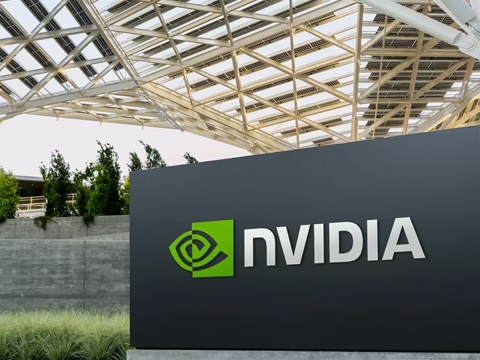Note: The information provided in the blog is only for educational purposes. We don’t claim the ownership of any brand-related word in this blog or website.
Most businesses can only imagine the kind of year that Nvidia (NVDA) has had.
Thanks to wise investments in AI technologies that are reaping significant rewards from the generative AI wave, its revenue and stock price skyrocketed.
But that’s not all. It has surpassed the $3 trillion mark and has alternated positions with Apple (AAPL) as the world’s largest publicly traded business by market capitalization. CEO Jensen Huang has become as one of Silicon Valley’s most sought-after executives, meeting with world leaders, other tech titans, and more.
There will be more in the future. In the fourth quarter alone, the business anticipates shipping several billion dollars’ worth of its powerful Blackwell chip for AI applications, with much more to follow throughout the year.

Source: https://finance.yahoo.com/
Daniel Newman, CEO of Futurum Group, told Yahoo Finance that Nvidia “really has the [hardware and software] for the AI computing era.” “Everything is interconnected both inside and outside the [server] rack, and the software is highly regarded by the developer communities.”
However, the competition isn’t just watching.
Businesses such as AMD (AMD) are attempting to steal Nvidia’s clientele and reduce its estimated 80% to 90% market share. Even Nvidia’s own clients are developing devices designed to reduce their dependency on the graphics behemoth’s semiconductors.
Wall Street is also joining the bandwagon.
Prior to the bell on Thursday, Nvidia’s stock was down one percent.
The stock of Broadcom (AVGO), a firm that designs AI chips for companies like Google (GOOG, GOOGL), has risen 113% so far this year and 44% in the last month after CEO Hock Tan stated that AI may provide the company a $60 billion to $90 billion potential in 2027 alone.
However, it will be difficult for any company to compete with Nvidia. Furthermore, it will be nearly impossible to unseat it as the AI king, at least by 2025.
The one in charge
Early investments in AI software gave Nvidia a competitive edge in the AI sector by enabling its graphics chips to function as powerful processors. And because of ongoing improvements in its hardware and Cuda software, which enables programmers to create programs for its chips, it has been able to maintain its market leadership.
As a result, so-called hyperscalers—massive cloud computing companies like Microsoft (MSFT), Alphabet’s Google, Amazon (AMZN), Meta (META), and others—keep spending money to acquire as many Nvidia chips as they can. Nvidia recorded $35.1 billion in total sales in its most recent quarter. Of that, its data center business accounted for $30.8 billion, or 87%.
“CUDA software and Nvidia hardware are the most efficient way to build and train these enormous models,” Bob O’Donnell, president and chief analyst at TECHnalysis Research, told Yahoo Finance.
In 2025, Nvidia is predicted to still dominate the majority of the AI market. Customers like Amazon are already upgrading their data centers with new cooling features to manage the massive heat produced by the company’s Blackwell chip, which is in production and is the replacement for its well-liked Hopper family of processors required to power AI applications.
“If it’s not a year, it’s almost a year,” O’Donnell remarked, “but I don’t know what the current backlog [for Nvidia’s chips] is.” “So, they’ve already sold out of most of the things they’re likely to produce next year.”
You can anticipate that a portion of the capital expenditures that hyperscalers are requesting be increased, or at least equal to those in 2024, will go toward buying Blackwell chips.
Also read:
Nvidia is still vulnerable.
Nvidia will continue to rule the AI market, but there are many competitors vying for its position. The two leading chipmakers, AMD and Intel (INTC), both have devices available on the market. While Intel has the Gaudi 3 CPU, AMD’s MI300X family of chips is intended to compete with Nvidia’s H100 Hopper chips.
However, with AMD struggling in the midst of its turnaround attempts and CEO search, AMD is in a better position to gain market share from Nvidia. However, AMD is finding it challenging to overtake Nvidia.1
In order to increase sales, Newman stated that AMD must “make software really usable and build the systems where there is more demand …with developers.” “Because these cloud service providers will sell what their clients want.”
But it’s not just AMD and Intel. Customers of Nvidia are increasingly creating and promoting their own AI chips. Microsoft (MSFT) has its Maia 100 accelerator, Amazon (AMZN) has its Trainium 2 processor, and Google has its Broadcom-based tensor processing unit chips (TPUs).
Additionally, there is worry that the move to “inferencing AI models” may lessen the demand for powerful Nvidia CPUs.
Known as the training process, tech companies create AI models by training them on vast volumes of data. It takes a lot of energy and really powerful processors to train. Putting such AI models to use, or inferencing, requires less power and resources. According to the theory, businesses will stop needing to buy so many Nvidia chips as inferencing becomes a bigger component of AI workloads.
At several events, Huang has stated that he is ready for this, stating that Nvidia’s CPUs are equally adept at inferencing as they are at training.
Nvidia’s business may not necessarily perform worse than it did previously, even if its market share declines.
“It’s clear that we need to raise all boats,” Newman stated. Therefore, it doesn’t follow that they will fail even if they face much tougher competition, which I’m sure they will. People are constructing a larger pie here.
Also read:



